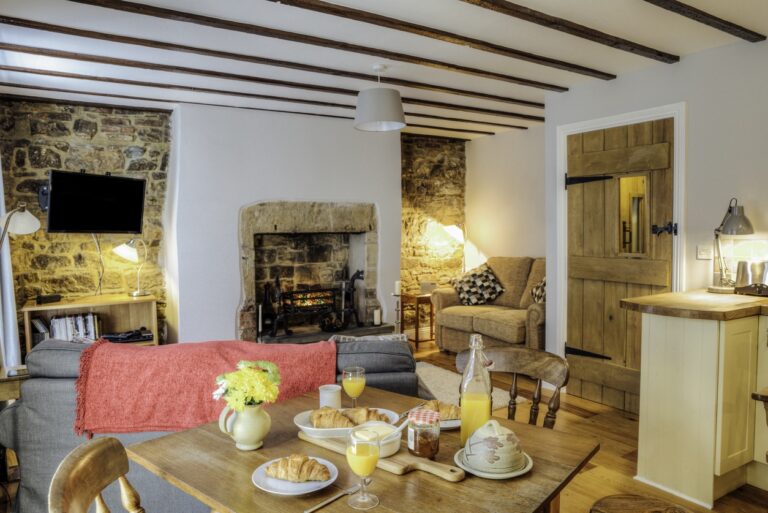
Furnished holiday lets
No way to run a tax system
In this article – first published in Taxation Magazine – John Endacott discusses the impact on individuals of the planned changes to the taxation of furnished holiday lets.
What is happening with tax on furnished holiday lets?
On 29 July, the new government published draft legislation to implement the abolition of the specific tax regime for furnished holiday letting. There was no accompanying tax policy commentary to clarify the position of the new government on this inherited tax policy, nor specific response to the lobbying and informal consultation that has taken place with interested parties since Jeremy Hunt’s Spring Budget on 6 March.
Given the context of the announcements on 29 July by Rachel Reeves, it is unsurprising that the new government has not wanted to forego a tax raising measure. To that extent, I was already convinced that higher and additional rate tax relief on loan interest was going to be restricted on furnished holiday lets (FHLs) whatever happened and that a 10% capital gains tax (CGT) rate on the sale of residential property is no longer an acceptable tax policy, however, I had thought that the government would not necessarily proceed with withdrawing the entire regime. On that I was clearly mistaken.
My impression from informal discussions with officials is that the existing FHL tax regime is seen as unfair as it gives tax advantages to one particular source of property income. And there you have it in a nutshell. HMRC are quite convinced that the income is property income, whereas the regime exists in the first place because of the uncertainty over whether some FHLs are not property income. It is déjà vu all over again.
Whilst I could easily write a whole article going down that particular rabbit hole, instead this article is a relatively brief commentary and observations on the draft legislation that has been published. It remains possible that the draft legislation will be altered through government amendment or more likely that there will be pertinent discussion of it in the Finance Bill Committee in Parliament that might impact on its interpretation.
I’ve restricted this article to individuals and so it is focused on the changes to ITTOIA 2005, ITA 2007 and TCGA 1992. That is partly due to relevance, and partly space, as that is where the most impact will be felt. Specifically, this article covers:
- The tax status of FHL income from 6 April 2025;
- Is the change on 6 April 2025 a cessation for tax purposes?;
- Transitional provisions for losses and capital allowances;
- The CGT status of FHLs from 6 April 2025; and
- Anti-forestalling rule for CGT.
The tax status of furnished holiday letting income from 6 April 2025
The approach in the draft legislation is to repeal Chapter 6 of Part 3 of ITTOIA. The effect is that the FHL tax regime is removed from the property income tax code within Part 3. The legislation in Part 3 of ITTOIA is re-written tax legislation and at the time the FHL rules had been in place for 20 years and I imagine that they would have been viewed as a settled part of the tax legislation. After the removal of the FHL tax regime, nothing is inserted to replace it. As a consequence, it is necessary to interpret the tax legislation from first principles based on decided case law. That case law was decided on the older legislation prior to the Tax Law Re-write. Does that change anything? Also, those tax decisions were widely criticised as creating too much tax uncertainty when they were decided four decades ago.
The decisions in the two Griffiths cases and in Gittos v Barclay determined that on the facts, the situations presented represented property income. At the time, many FHL businesses were being assessed by the then Inland Revenue (it was prior to Self-Assessment) as Schedule D Case VI – so they were neither a trade nor pure rental income.
The position currently is that the commercial exploitation of land is taxed as a trade on the basis of section 10. Property income is taxed under section 264. Section 4 provides an order of priority that if a source of income could be taxed as a trade or as property income then it is taxed as property income. Is it the case that prior to the abolition of the FHL tax regime Chapter 6 acts to determine that qualifying FHL income is property income? If that is the correct statutory interpretation, then does that mean businesses that were trades had to be taxed as property income under Chapter 6 and that they may not constitute property income without Chapter 6?
HMRC’s view of what is property income is set out in PIM1020. This states that “If a landlord has Furnished Holiday Lettings (FHLs), the profits are part of the taxpayer’s UK or overseas property business – FHLs are not a third category of property business”. The language is interesting in terms of talking of the owner as a landlord. Not a term that would be used in commercial parlance.
HMRC’s view of the legislation is long established. I have looked back at IR150 which provided guidance on the changes to rental income that were introduced for 1995/96 in advance of Self-Assessment being introduced. FHLs are described as having “some tax advantages over other lettings”. The view is very clear – they are rental income but with favourable tax treatment. That perspective dominates the government’s thinking, but is it the only view?
Are all FHLs property businesses? It seems that it is to be left to the courts to decide – which all feels very unsatisfactory. It is worth recalling that the Office for Tax Simplification (OTS) recommended a new statutory test – but we are not getting one.
A short stay car park is taxed under section 10 as a trade and a hotel is taxed as a trade. Length of occupation is relevant as to what constitutes property income. An annual letting of a car parking space would be taxed as property income. An annual letting of a property is clearly property income and a monthly let still feels like property income to me. What about a week or only a few days? Whilst the Griffiths cases in the early 1980s helped kick off the whole issue, they concerned student accommodation and so were longer term lettings.
That takes us back to Gittos v Barclay, which was decided in 1982 and concerned the letting of holiday bungalows in Looe, Cornwall. The detail in the case stated is limited, but the letting years concerned were 1978/79 and 1979/80 and we know that the two bungalows were available for 35 weeks of the year. The actual letting would have been less than that and I suspect that the lettings were for one-week, or two-week, periods. The method of booking and letting is not comparable to a modern holiday letting property, as UK self-catering holidays have moved on in the last 45 years! This all looks very unsatisfactory and no way to run a tax system.
We know that providing furniture doesn’t determine the issue, as furnished accommodation is still taxable as property income. Nor does it seem to be the legal nature of the occupation. It was established in the Julian Nott case that occupying under a licence did not change the nature of the income, although that was only a First-tier decision and so not precedential.
Lord Wilberforce in Ransom v Higgs referred to a “matter of degree, of frequency, of organisation, even of intention”. Degree and frequency are key factors – if the occupation is for less than a week, is it still rental income? Many bookings are now typically only three or four days.
Lord Macmillan in the older but higher case of Fry v Salisbury House focused on the need for there to be sufficient services to turn a rental activity into a trade. Justice Goulding in Gittos v Barclay concluded on the basis of the minimal services provided in the bungalow at that time, that those services were insufficient to make the activity a trade. Even then, he suggested that if he were allowed to determine the facts he might have come to a different decision. Typically, the level of services provided now is much more than in the late 1970s.
Much like the OTS, I am once again left asking the question “where is the boundary?”, and I don’t know. I have seen comments that certain people believe their activities amount to a trade when they appear to be clearly property income to me. As a minimum, those will create aggravation for HMRC to deal with. Further than that, I suspect trade associations or lobbying organisations might take test cases to try to establish the position. From my perspective, this all looks very unsatisfactory and no way to run a tax system.
Is the change on 6 April 2025 a cessation for tax purposes?
The legislation is drafted on the basis that the abolition of the FHL tax regime on 6 April 2025 is not a cessation of a business. It could perhaps be described as the cessation of a FHL activity but not the cessation of a FHL business. The approach is to view all FHL businesses being carried on within the charge to income tax as property businesses within Part 3 of ITTOIA. On this view, the abolition of Chapter 6 does not cease the property business but merely changes the way that property business is taxed. Chapter 6 is therefore viewed as a favourable tax treatment that is being withdrawn without impacting on the continuation of the business.
That is different to how I believe many tax advisers have historically viewed the position. That perspective is derived from the schedular system of taxation which was withdrawn when self-assessment was introduced in the 1990s. It has always been the case since the self-assessment tax return was introduced that FHL income has been declared on the property income page. In that respect, HMRC’s approach has been consistent with this approach.
This might seem very pedantic but it is pertinent in terms of understanding how the transitional rules have been drafted and how the CGT rules are interpreted. The abolition of the FHL tax regime is not a cessation of a business.
Transitional provisions for losses and capital allowances
There has been considerable lobbying to try to ensure that FHL businesses are not adversely impacted by the loss of entitlement to capital allowances and that entitlement to accumulated losses is maintained. This is approached by dealing with the business as a continuing property business.
Entitlement to new capital allowances is withdrawn going forwards but entitlement to writing down allowances continues each year on existing pool balances. The capital allowances become those of a property business (see paragraph 18(1)(b) of the draft legislation). Paragraph 18(5) disapplies section 35 CAA 2001, that otherwise prevents claims in respect of dwelling houses, as far as the brought forward expenditure is concerned.
If the activity changed to being taxed as a trade then these transitional rules for capital allowances would not apply. Instead, strictly, it would be necessary to cease one business and commence a new business.
In the same way, accumulated FHL losses are treated as being property business losses. This is consistent with the interpretation of FHL businesses being a sub-set of property businesses, which in many ways is very coherent, except that currently FHL losses are not property losses. So, not really as coherent as it might first appear.
It is also important to note that if an existing FHL business which has accumulated losses decides to file as a trade from April 2025, then those losses will be forfeited as they will not carry forward as trade losses. It would be necessary to ‘correct’ historic mis-filing, if indeed there has been any historic mis-filing.
The capital gains tax status of furnished holiday lets from 6 April 2025
Turning to the capital gains tax (CGT) legislation, the approach again is one of simply repealing the relevant sections. That might be reasonable if the income tax code is clear. By removing section 241, and re-drafting the definition of trade for CGT purposes, FHLs simply cease to qualify for certain CGT reliefs from 2025/26 onwards. Note though that they do qualify for those reliefs in 2023/24.
The point here is that the older drafting of the CGT legislation extends the definition of trade to include that of a qualifying FHL activity, albeit section 241(3)(a) does describe the FHL activity as a “UK property business”, having been re-drafted in both 1998 and 2005.
This leads to an “interesting” interaction when it comes to business asset disposal relief (BADR). When relying upon section 169I(2)(b) for a sale of a property within three years of a cessation of trade, is the requirement to have a cessation an actual one or is there a deemed one within the context of the repeal of section 241? Given that the CGT legislation is much more explicit on how the definition of trade is changing, and that it is riddled with deeming provisions, it does feel that the deemed cessation could be sufficient.
Furnished holiday lets cease to qualify for certain capital gains tax reliefs from 2025/26 onwards.
The government appear to be relying on the wording “the business ceases” in paragraph 19(a) in the draft legislation as a factual requirement, but it doesn’t feel clear and is mixing up the terms “business” and “trade”. For BADR, it isn’t sufficient simply for the business to continue as, despite the name of the relief, it only applies to trades (section 169S(1)). In view of the value of some FHLs, and the current differential between the tax rate under BADR and the main rate on residential property, then it feels like this point is likely to be pursued within tax filings.
A further complication is how roll-over relief works on the transition. My understanding of the intention of paragraph 13(2)(a) is that an FHL is a qualifying asset for roll-over relief purposes prior to 6 April 2025, but not afterwards. However, my reading of the draft legislation serves to confuse more than help establish that.
Anti-forestalling rule for capital gains tax
The anti-forestalling rule was announced in the Budget on 6 March. There was no further detail provided at the time but it is now available as paragraph 14 of the draft legislation. My understanding of the intention of the rule is to target disposals that might be entered into to artificially access business asset disposal relief (BADR). It does extend further than that though, and also targets claims for roll-over relief and gift hold-over relief.
Where there is a disposal of an FHL under an unconditional contract on or after 6 March 2024 and the “asset is conveyed or transferred” after 5 April 2025, then in order to access any of the CGT reliefs currently specifically available to FHLs, two further conditions must be satisfied:
- Condition A – there was “no purpose of entering into the contract” in order to avoid the abolition of the FHL rules; and
- Condition B – either, the parties were “not connected persons” or “the contract was entered into for wholly commercial reasons”.
I understand that this anti-forestalling rule was based on the legislation used when the BADR lifetime limit was reduced from £10m to £1m in March 2020.
Great care will be required where any contract does not complete before 6 April 2025. It is hard to see how a claim for gift hold-over relief would not fail condition B. Some FHL businesses might be tempted to incorporate, and if so it would be sensible to plan to implement that well in advance of 5 April next year.
As far as BADR and roll-over relief are concerned, then there are additional complications to consider on the introduction of the new rules as set out earlier in this article.
Where are we now?
It is helpful that we now have more detail on the proposed abolition of the FHL tax rules, in the form of draft legislation and an explanatory note. That is appreciated and to be welcomed. But there are still details to iron out and the HMRC view is that all the businesses impacted are property businesses going forwards. It is disappointing that the proposed implementation date remains as April 2025.
The new government has been at pains to say that it supports business – both large and small. It has stressed that it will not introduce changes that disadvantage business or make economic growth harder to achieve. Yet this policy damages businesses in the leisure and tourism economy. Fairness is another government objective and I understand the perceived unfairness point, but given that the policy has been inherited and the amount of tax revenue it is expected to raise is fairly small, then why not take more time to try to resolve this 40-year-old tax problem?
Read more on this topic:












